JournalismPakistan.com | Published May 03, 2017
Join our WhatsApp channel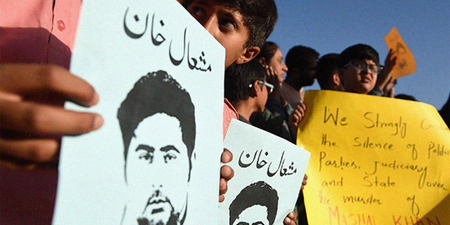
The International Federation of Journalists (IFJ) and the South Asia Media Solidarity Network (SAMSN) marked World Press Freedom Day 2017 Wednesday by releasing “New Fronts, Brave Voices: Press Freedom in South Asia 2016-17”.
The 15th edition of the annual report documents the deteriorating press freedom situation, media rights issues, and national and regional activities to empower journalists to confront the challenges relating to press freedom of South Asia over the past year.
Nineteen journalists, bloggers, and media workers were killed in the period under review (May 2016 to April 2017) with Afghanistan recording eight killings continuing to be one of the most dangerous countries for journalists. The killings of Pakistani journalism student Mashal Khan, bludgeoned to death in a mob attack on unfounded allegations of posting blasphemous contents online and Maldivian blogger Yameen Rasheed, brutally stabbed to death, indicate the worsening trend for the media.
“These killings horribly encapsulate the latest picture of threat and danger emerging from the violent discourse overtaking parts of South Asia, and more broadly around the world where the authoritarian rule is eroding the very essence of democracy. With it, suffers press freedom and the public’s right to know,” the IFJ said.
This year’s press freedom report highlights the issue of internet shutdowns in South Asia, the world’s leading region on virtual curfews; and online harassment, especially that of female journalists along with special reports on impunity, and gender issues. The growing restrictions on the internet access have threatened the freedom of expression online as the governments continue to find new ways to put curbs, and risks of digital insecurity for journalists is at an all-time high. Pakistan, Maldives and Nepal have all introduced repressive laws restricting freedom of expression whereas Bangladesh continues to step ahead with mass surveillance and India sporadically enforces internet shutdowns in the name of ‘national security’.
While the overall situation looks bad, South Asia is also making progress and has recorded some positive steps. Bangladesh had a win against impunity, convicting the killer of photojournalist Aftab Ahmed, and Sri Lanka continues on its reform path with the enactment of Right to Information Act.
The IFJ added: “Around South Asia, as well as contending with democracies in transition and the broad economic challenges that come hand in hand, we see how journalism is fighting for its very existence and survival on numerous old and new fronts. While governments and extremists continue to put a megaphone to fear and less to reason and moderation, the stories of South Asia and, importantly, the work of its journalists is as vital as ever and must be defended defiantly and bravely.” - IFJ media release/Image: IFJ

June 11, 2025: Pakistan celebrated a narrow win over Bangladesh, but beneath the jubilation lies a deeper crisis—from sidelined veterans to a collapsing domestic structure—signaling an urgent need for cricket reform.
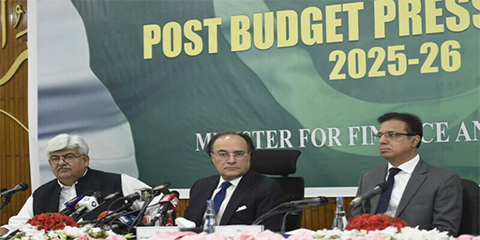
June 11, 2025: Journalists walked out of the post-budget press conference in Islamabad to protest the absence of a technical briefing and the government's dismissive behavior, calling it unacceptable and intolerable.
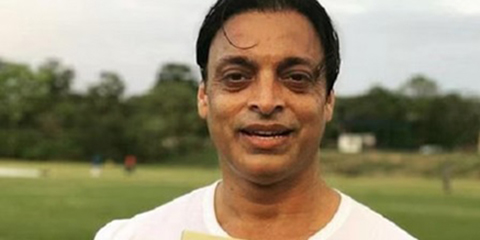
May 31, 2025: Dr. Nauman Niaz has issued a defamation notice to Shoaib Akhtar over derogatory remarks made during a recent broadcast, reigniting a longstanding media feud between the two prominent figures in Pakistan.

May 30, 2025: The Human Rights Commission of Pakistan has demanded the full repeal of PECA, citing its vague language, coercive powers, and threats to free speech and digital rights in Pakistan.
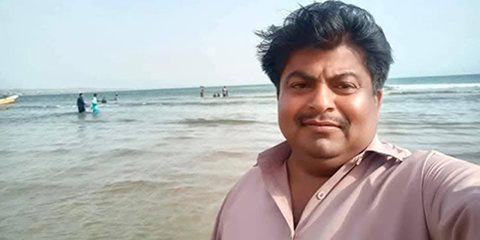
May 30, 2025: The Pakistan Federal Union of Journalists (PFUJ) has condemned the murder of journalist Syed Mohammed Shah in Jacobabad, calling for urgent justice and improved safety for media professionals in Sindh.

May 26, 2025: In Rawalpindi, police allegedly side with Jang Group to block 66 reinstated employees from resuming work despite court orders, drawing sharp criticism from unions and press freedom advocates.

May 25, 2025: PFUJ condemns the Jang Group's decision to dismiss over 80 employees in Rawalpindi, calling it an 'economic massacre.' The union warns of nationwide protests if workers are not reinstated.
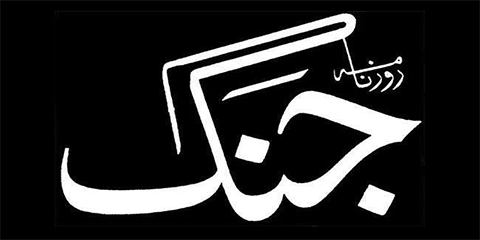
May 25, 2025: Daily Jang Rawalpindi has terminated over 80 employees, including female staff, despite multiple court rulings in their favor—raising concerns over labor rights violations and misuse of authority in Pakistani media.
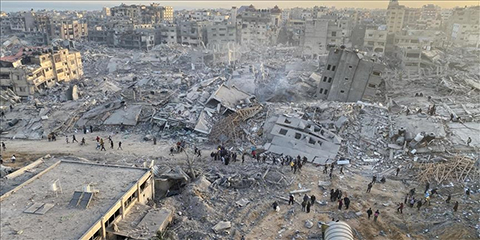
May 19, 2025 PJS reports 219 Palestinian journalists killed in Israeli attacks since October 7, with 30 women among the victims. Over 430 were injured and 685 family members were killed. Read more on the systematic targeting of media in Gaza.

May 15, 2025 Discover the legacy of Samiullah Khan, Pakistan’s legendary "Flying Horse," whose breathtaking speed and artistry redefined hockey. From Olympic glory to World Cup triumphs, his story is one of myth, movement, and magic.
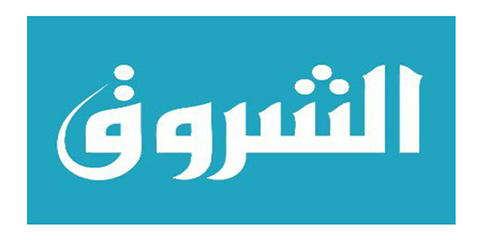
May 04, 2025 Algerian authorities suspend Echorouk News TV for 10 days after it used a racist slur against African migrants. ANIRA demands an apology, calling it a violation of human dignity.

May 04, 2025 NCHR and MMfD launch a journalism fellowship to train reporters on digital rights & gender inclusion in Pakistan. Supported by UNESCO, this initiative aims to bridge the gender digital divide. Apply by May 15, 2025!
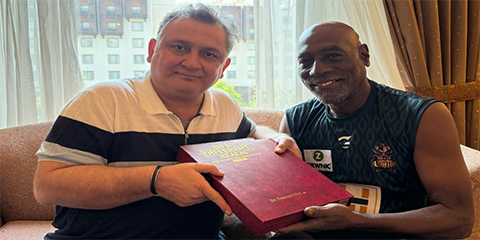
April 23, 2025 Discover Dr. Nauman Niaz’s In A Different Realm: Story of Quadruple & Triple Centuries 1876–2025, a profound exploration of cricket's most monumental innings, blending historical analysis with poetic narrative.